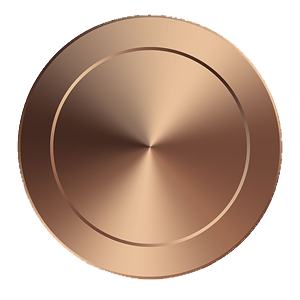Ocean Insight 2021 Grant Program Winners
- Education & Academia

Spectral technologies supporting a safer, cleaner, healthier world are well represented by our winners, whose work addresses challenges from Alzheimer’s diagnosis and cancer treatment to coral reef health and uranium detection.
February 4, 2022
We are pleased to announce the winners of the 2021-22 Ocean Insight Grant Program.
The seven winning proposals were selected from hundreds of entries representing nearly 50 countries and comprising leading universities, research institutions and technology start-ups.
Grantees will be honored at a virtual Ocean Insight Grant Program Awards event, with scheduling and other details to be announced.
Thank you and CONGRATULATIONS to ALL the participants!
 Ocean Inspiration Award (1st Place) - $20,000 in Ocean Insight Products
Ocean Inspiration Award (1st Place) - $20,000 in Ocean Insight ProductsUniversity of Liverpool, England, United Kingdom
Submitted by Heike Arnolds
Summary: Improving non-invasive diagnostics of proteins associated with Alzheimer’s disease
Non-invasive diagnostic methods for diseases and personalized medicine are of increasing importance. Some through-skin detection schemes exist for specific diseases, but not for diseases caused by misfolded proteins, which mostly require biopsies or full-body scans.
Amyloids are misfolded proteins associated with neurodegenerative diseases such as Alzheimer’s. These proteins possess a unique blue autofluorescence and a characteristic near-IR fluorescence. This fluorescence shows a constant Stokes shift and likely arises from a Raman-active peak that is characteristic for misfolded proteins. This constant Stokes shift and the narrow linewidth of the observed feature should enable a distinction between amyloid and melanin, the main fluorescent chromophore of tissue in the near-IR.
We will show that distinction from melanin and detection through skin is feasible, initially with mixed melanin/amyloid solutions (insulin, immunoglobulin light-chain), later with small deposits underneath artificial skin to mimic the optical properties of real skin.
 Ocean Merit Awards (2nd Place) - 2 winners, each receiving $10,000 in Ocean Insight Products
Ocean Merit Awards (2nd Place) - 2 winners, each receiving $10,000 in Ocean Insight Productsbialoom Ltd., Nicosia, Cyprus
Submitted by Dimitris Tsiokos
Summary: Developing a detection platform for diagnosis and treatment of bacterial sepsis
Bialoom develops a unique detection platform aiming to accelerate diagnosis and treatment of acute infections at the point of care focusing on bacterial sepsis. With its unique plasmonic-augmented silicon photonic biosensing platform, bialoom’s test will measure diagnostic and therapeutic biomarkers through dense arrays of multiplexed assays from a single drop of patient sample.
Our tool will enable timely but also quantitative analysis of clinical evidence for high risk infections. We aim to 1) reduce misuse and overuse of antibiotics by offering critical diagnostic outcomes right in the patient’s examining room, impeding further growth of antimicrobial resistance worldwide; 2) provide the necessary tools to defend public healthcare systems in pandemics similar to COVID-19; and 3) enable timely diagnosis and treatment of sepsis, a common yet deadly complication of bacterial but also viral infections.
University of Windsor, Windsor, Ontario, Canada
Submitted by Bulent Mutus
Summary: Developing a flow device for rapid characterization and capture of microplastics
The discovery of microplastics (MP) in near-pristine areas is raising concerns regarding risks of MP accumulation, associated with long residence times, ubiquity, and propensity for ingestion and related biological impact. Unfortunately, there are no rapid and inexpensive methods for detecting and isolating MP from the environment. We have produced fluorescently-labelled affinity ligands for waterborne MP with apparent dissociation constants in the micromolar range, in the presence of complex environmental samples -- i.e., aqueous soil suspensions.
We will construct a flow device for the detection, sizing and isolation of MPs from environmental water samples. This device can be used for the rapid detection and isolation of MPs from point sources such as waste treatment facilities. Furthermore, our affinity ligands can potentially be used in the large-scale isolation of MPs from water point sources, thereby lowering the risks of environmental MP contamination.
 Ocean Imagination Awards (3rd Place) - 4 winners, each receiving $5,000 in Ocean Insight Products
Ocean Imagination Awards (3rd Place) - 4 winners, each receiving $5,000 in Ocean Insight ProductsAmsterdam UMC, Amsterdam, The Netherlands
Submitted by Xavier Attendu
Summary: Developing fiber optic sensors for enhanced detection of esophageal cancer
Esophageal cancer is one of the deadliest cancers worldwide due to the difficulty associated with its early detection. We are developing fiber optic-based sensors that can differentiate cancerous tissue from healthy using reflectance spectroscopy. These sensors can be integrated with standard endoscopy tools to enhance current diagnostic capabilities.
Doctors currently rely on video-endoscopy and random biopsies to detect the presence of cancerous growths. Both methods are ill-suited to detect the microscopic and highly localized changes associated with early-stage cancers. Our fiber probes non-invasively assess larger areas of tissue and provide real-time interpretation or classification. They may be used to guide biopsies and improve targeting or replace them altogether.
Nova Southeastern University, Dania, Florida, USA
Submitted by Abigail Renegar
Summary: Investigating the effects of UV light exposure on toxicity of coral reef contaminants
Coral reefs, and in particular urban-associated reefs, are facing a broad array of threats. The effects of many chemical contaminants are not well characterized and this represents an important gap in understanding the impact of these chemicals to coral health and resilience.
As many contaminants are photo-reactive, photo-enhanced toxicity or the toxicity of photo transformation products plays an important role on the impact to organisms in the photic zone, and this research will fill critical scientific gaps related to how UV light exposure affects the toxicity of these contaminants. This will support actions targeted at reducing the level and impact of chemical contaminants by prioritizing those of greatest risk, with the goal of reducing further coral mortality and reef degradation.
Shandong University, Shandong Province, China
Submitted by Yong-Qiang Li
Summary: Developing improved technologies for antibiotic susceptibility screening
Bacterial infections pose a serious global challenge to public health and cause heavy economic burdens. Antibiotics discovered in the 20th century provided a transformative advantage in the fight against bacterial infections. However, non-judicious use of antibiotics has led to the spread of drug-resistant bacteria at an alarming rate around the world. Now, antibiotic susceptibility testing has become a clinically necessary and frequently used standard operation.
Traditional bacteria culture-based antibiotic susceptibility assays are cumbersome and time-consuming, greatly hindering the screening and treatment efficiency of antibiotics. This project is expected to develop a rapid and accurate antibiotic susceptibility testing platform using SERS technology, thus accelerating the screening efficiency of antibiotics and improving the therapeutic effect of clinical bacterial infections.
Washington University in St. Louis, Missouri, USA
Submitted by Daniel Thorek
Summary: Improving methods of detection of uranium in natural and industrial environments
The contamination of industrial and natural environments by uranium is associated with genotoxicity, organ failure and cancer. The presence of uranium isotopes is also of great interest for the purposes of national defense and response to radiological emergencies.
Standard methods to detect uranium on surfaces, materials or in drinking water require cost-prohibitive equipment often sequestered at centrally-consolidated laboratories. Uranium has well defined spectral fluorescence response in the 475-550 nm range. We have developed technologies for the chemical chelation and benign collection of uranium species in the environment, and in biological samples. Spectroscopy tools to detect and verify decontamination would be an impactful tool toward a cleaner, healthier and safer society.
Researchers from start-up companies and local, state and federal institutions including colleges, universities, research centers and regulatory agencies in the Americas, Asia-Pacific, and EMEA (Europe, the Middle East and Africa) are eligible.
Your application must be submitted no later than Dec. 21, 2021. When submitting your application, you agree to the following terms:
Ocean Insight collaborates with customers to discover, refine and deliver new approaches to solving the world’s most pressing problems with spectral technologies. Our expert Grant Program judging panel will evaluate applications based on their technical merit, innovation, and advancement of initiatives that improve health, safety or the environment. Examples include improved medical diagnostics, more accurate security screening technologies, and more advanced crop analysis.

Receive updates from our team as we share application notes, customer spotlights, educational tools, spectroscopy how-to’s, and more.